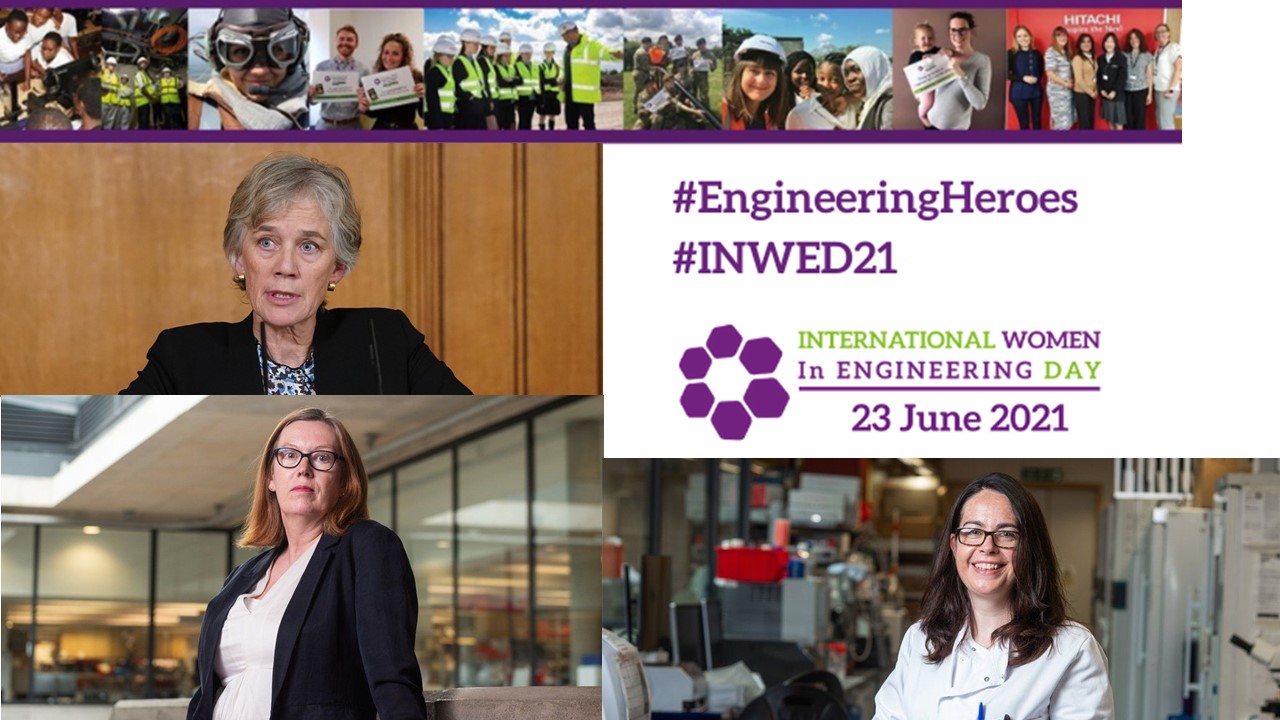
Celebrating Women In Engineering Day
Today is Women In Engineering Day and the theme is #EngineeringHeroes, about women who are going to shape the future.
MPI would normally love celebrating the women in the industries that we work in but after everything that has happened in the last 18 months we want to celebrate remarkable women scientific engineers who have made an amazing difference to this pandemic. These women are not only brilliant but they are also inspiring more women to enter into the STEM subjects which is so important. At the moment only 13% of the engineering workforce is women and anyone that inspires a change in those statistics should be celebrated. The women in question are Professor Dame Angela McLean, Professor Sarah Gilbert and Professor Teresa Lambe.
I am sure most people will recognise Professor Dame Angela McLean who has often stood on the podium with the prime minister for the COVID briefings. She is the Chief Scientific Advisor for the Ministry of Defence and is the first women to have been in that role. Asked about how she feels to be inspiring young women into the industry she said "I think it would be such a great spin-off of this difficult year if more women were to consider doing STEM subjects for their university education because they saw that there are all sorts of interesting jobs". What a great quote! Wouldn't it be great if something positive like that did come out of what has been a truly horrendous year.
Professor McLean was appointed to her role as Chief Scientific Advisor in September 2019 which is in itself a massive undertaking but to go straight into a helping to manage a global pandemic is a true testament to this inspirationals womens skill and strength. She has been awarded the Gabor Medal in 2011 and the Weldon Memorial Prize in 2018. She received her damehood in the 2018 Queen’s Birthday Honours List. She truly is a remarkable scientist and mathematical engineer.
Professor Sarah Gilbert and Professor Teresa Lambe are colleagues and Sarah is named as the creator of the Oxford Astra Zeneca COVID vaccine. Sarah nearly gave up during her doctorate because she liked to draw ideas from multiple areas and people and not work "singularly and tunnel- like" which is what she saw so much of in the industry. Luckily for everyone she decided to give it one more go and after a few years in other fields Sarah started working on the genetics of malaria which led to working on vaccines for malaria. After having triplets, whilst working at Oxford University Sarah started rising through the ranks and even set up her own research group to find a universal flu vaccine that would work on all strains. In 2014 she led her first trial of the Ebola Vaccine and when the Mers Virus struck she travelled out to Saudi Arabia to try and create a vaccine for this type of coronavirus.
They were just starting the second trial of that vaccine when COVID-19 emerged. Professor Gilbert quickly realised she could use the same approach for this new virus. Her colleague Teresa Lambe said they were quick at that point. As Chinese scientists published the genetic structure of the new virus Teresa says "Over the weekend, the vaccine was pretty much designed. We went pretty fast with it." It took a few weeks to create a vaccine that worked against Covid in the lab. Then the first batch went into manufacture by early April and the rigorous testing was started. Prof Gilbert described the process as a series of small steps - rather than there being a big breakthrough moment but she persevered and used her incredible knowledge to get there."From the beginning, we're seeing it as a race against the virus, not a race against other vaccine developers," she said earlier this year. "We're a university and we're not in this to make money." She is described by many people as a conscientious, quiet and determined person and someone with "true grit", a true #engineeringhero
So whilst we acknowledge there are some incredible women engineers within our client base, and people we would love to clap our hands for this year, we wanted to focus on these incredible women who have undoubtedly helped get us through this difficult time. Well done to them and lets hope they continue to inspire more women into the fields of STEM subjects.
